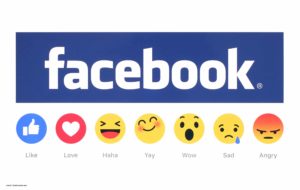Brand Loyalty: Why it Matters for Your Healthcare Practice
The inspiration for this article came from my favorite grocery store, Publix. I was raised in the southeast, and developed a strong attachment for the chain. If you haven’t visited a Publix before, it’s hard to image what makes this grocery store different from others. Every time I walk in, I feel a sense of comfort. The atmosphere is that of a “mom and pop” shop, where it feels like you’re surrounded by family. There are always free cookies for kids at the bakery, and the people at the deli counter always remember how I like my turkey sliced.
Publix is most famously known for three things: its customer service, its subs (sandwiches), and of course the holiday commercials. Since I can remember, I’ve always looked forward to the heart-warming Christmas commercials that tell stories of love and acceptance.
A few years ago I moved out here to Southern California, where there is no Publix, and I have to say, it’s been a tough adjustment. To me, and to many of the people I know, Publix isn’t just a grocery store – it’s an experience. Publix understands the importance of value and good service as well as having a strong brand message.
How many of us can say we feel that way about our doctors? How many physicians can say they understand the importance of brand loyalty?
According to Investopedia, brand loyalty is a pattern of consumer behavior where consumers become committed to brands and make repeat purchases regardless of convenience or price. Often, these relationships are cultivated over time and need continual nurturing.
In today’s fast-paced, numbers-driven society, it’s easy for companies to aim for bottom line numbers rather than nurturing relationships. While you can achieve your short-term goals by appealing to new customers, long-term customers buy 90% more frequently, spend 60% more per transaction and are five times more likely to stick with a brand.
In terms of healthcare, building and fostering relationships with patients is more than just good for business, it’s also good for a patient's overall wellbeing. As the doctor-patient relationship improves, so does their health.
Creating a good relationship with patients, and thus establishing brand loyalty, doesn’t have to be complicated or time-consuming. It comes down to simple moments and good customer service.
Perception of Value
The perception of value carries enormous weight to consumers and patients. Perceived value isn’t the actual value of service, but rather the worth of the service according to each patient. So, to put it simply, perceived value is an opinion that the patient or consumer makes based on their experience with the physician or practice.
Why is a patient’s opinion important? It matters because patients have a choice, and if they don’t enjoy their visit they can choose to find another doctor or practice.
To be clear, I’m not advocating for a “the customer’s always right,” approach, but rather for physicians and office staff to bear in mind that they have a responsibility to ensure patients have a safe and comfortable experience.
What was parking like? How long did they wait in the waiting room? Was the front office staff friendly? How long did they wait in the exam room? Were the nurses and physicians friendly and caring?
Perception of value really comes down to the patient experience. In the current healthcare climate, patients are paying more for healthcare, and they expect their experience to reflect the higher costs. They expect a smooth experience where they’re treated like a paying customer and not like someone who’s taking up a doctor’s time.
Additionally, a patient’s perception of value can be tied to your brand. Think about what your marketing efforts are promising to potential patients. Are you delivering on those promises? Patients arrive at your office with expectations of how their visit will unfold based on what they’ve seen from your marketing messages.
Facilitate Personal Experiences

A few years ago, Forbes wrote its own article about brand loyalty. While the article wasn’t tailored to healthcare, many of the messages still resonate. Featured in the article was Armando Azarloza, President of the Axis Agency, who said, “brands must have purpose by producing goods and services that improve the lives of consumers and enhance quality of life.” Luckily for doctors, this is literally what they do.
Azarloza also talks about the “savvy consumer” and that brands need to focus on improving interaction and building stronger relationships. For physicians, this means delivering personal experiences for every patient during every visit.
But delivering personal experiences doesn’t have to be taxing or time consuming. Many patients just want to feel heard and be seen as individuals. Actively listen to and address their concerns. A kind smile, proper introduction and eye contact go a long way toward patient satisfaction. It sounds like common sense, but a physician-friend once told me that 75 percent of doctors forget to introduce themselves.
Brand loyalty is closely tied to how a brand, business, or practice makes the consumer feel. Personal touches and strong patient-physician communication reduces anxiety, makes the patient feel safe and important, and builds a trusting relationship.
Reputation Management
We’ve said it before: patients are informed consumers. For many patients, your reputation starts before they even walk through the door. Chances are they’ve Googled your name or the name of your practice. As many as 85 percent of patients are choosing doctors based or assisted by online reviews. Do you know what prospective patients will find?
As we discussed earlier, part of brand loyalty is perceived value. What people say about your brand and quality of care matters almost as much as – if not more than – your advertising efforts.
Online reviews should be considered a form of word-of-mouth. While they aren’t directed at any one consumer, they still advocate for or against a practice or physician.
Reputation management is often overlooked but is an imperative piece for building brand loyalty. Patients may have had a good experience, but could lose faith in the practice or physician if they hear others did not.
Social Media
Once brand loyalty is established, there is a certain level of maintenance required. Brands still have to be fully engaged and actively involved with consumers.

Social media is a powerful tool for staying connected with patients, which makes your brand and healthcare organization seem more personal. We encourage our clients to use social media as a way of further facilitating meaningful interactions by posting office photos, posting updates about the practice, and responding to comments and questions from patients.
What does all of this have to do with a grocery store? Every time I visit my family on the east coast, I have to make a pilgrimage to Publix, because it’s a brand I trust that delivers a quality product. Yes, a physician and a grocery store chain are very different, but both are responsible for building a rapport with their respective consumers.
In healthcare, patient satisfaction and brand loyalty leads to happier, healthier patients, which can also make the physician’s job easier and more enjoyable. But brand loyalty certainly doesn’t happen on accident. It takes thought, a good patient-physician relationship, and time for a first-time patient to become a life-long partner in healthcare.
It’s important to remember that as the market and patients’ needs change, the way they perceive value will change as well. So, with the goal of building brand loyalty in sight, remember to ask yourself, “What is our value to the patient?”
Related Articles:
Healthcare Consumerism: How to Avoid Being Left Behind
Nine Free Ways to Quickly Engage Patients and Build Enduring Loyalty
5 Best Practice Concepts to Improve Marketing to Physicians
Patient Loyalty: How to Build and Maintain Relationships in the New Age of Healthcare









